Great 10min Interview with Rob where he talks 'The Lighthouse", "Batman" & "Tenet" with Anne Thompson.
Click on the pic or HERE to watch
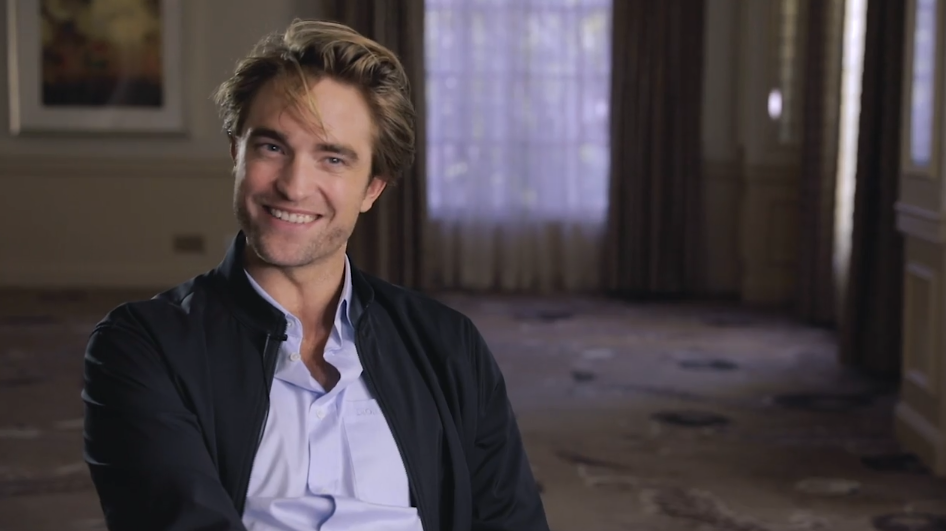

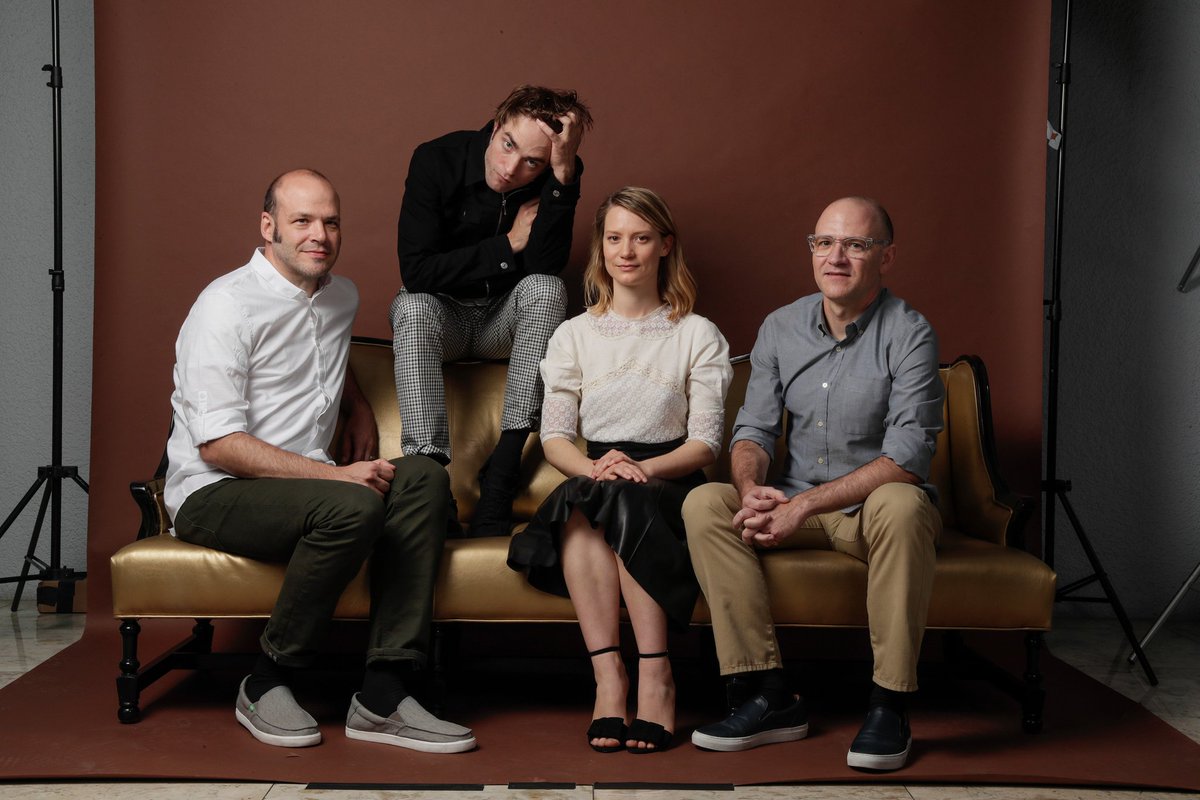
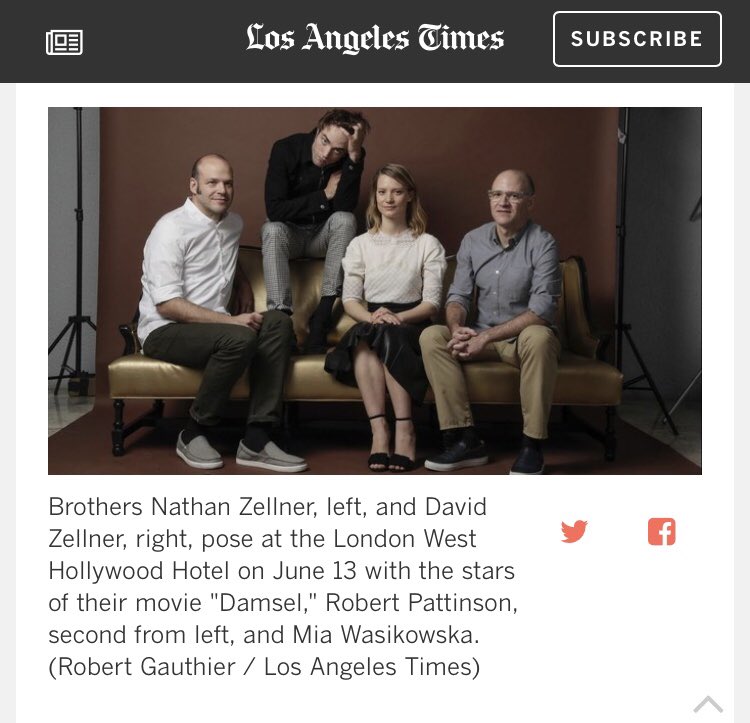
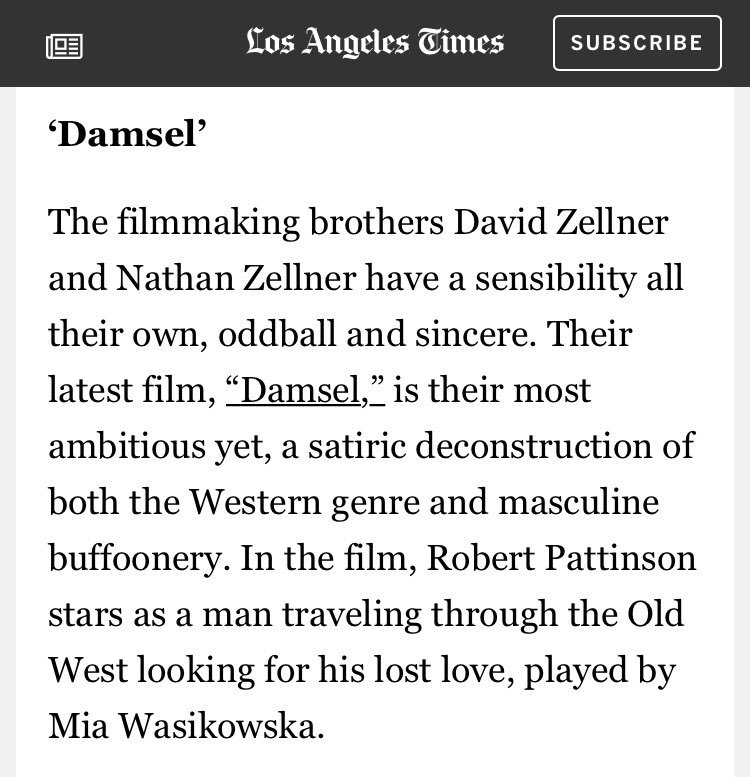
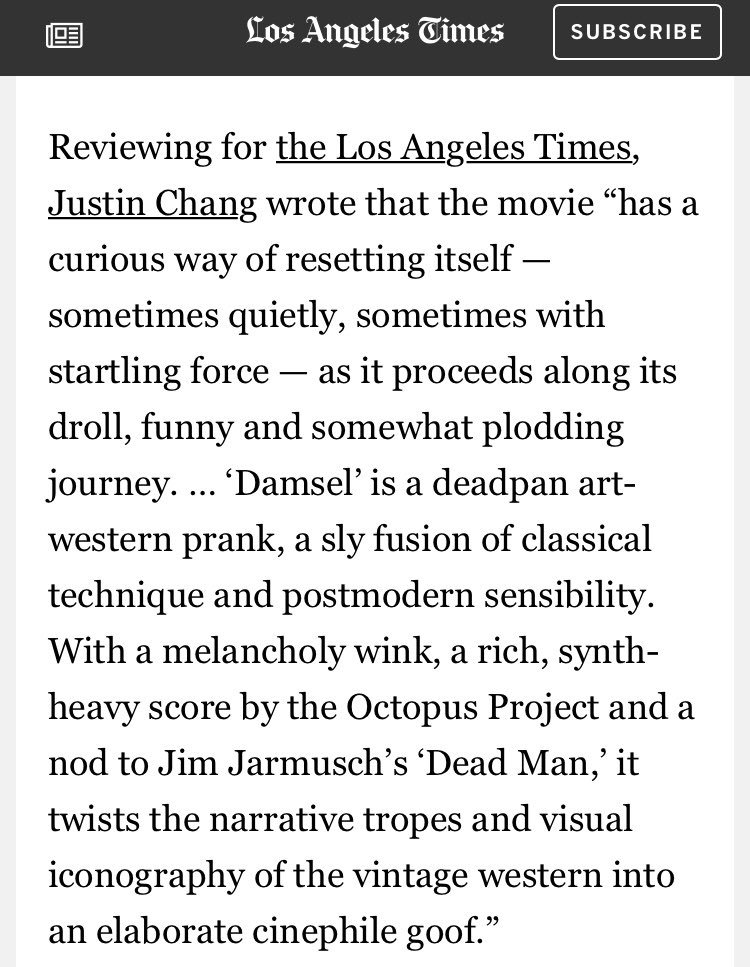
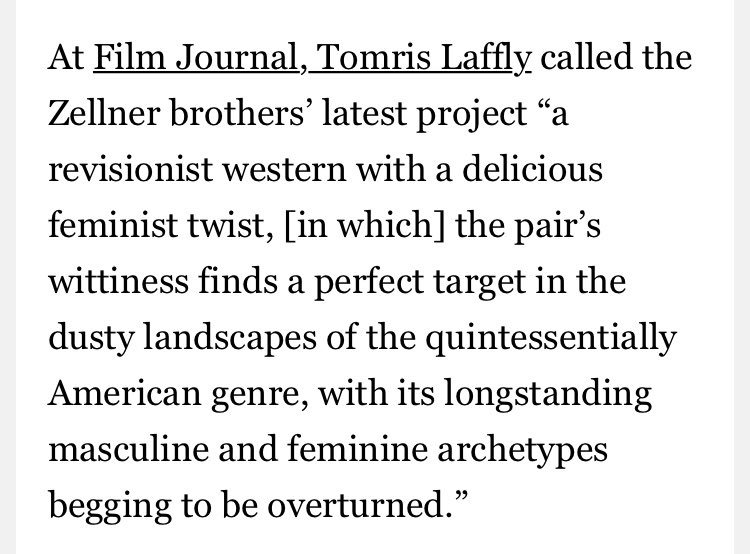
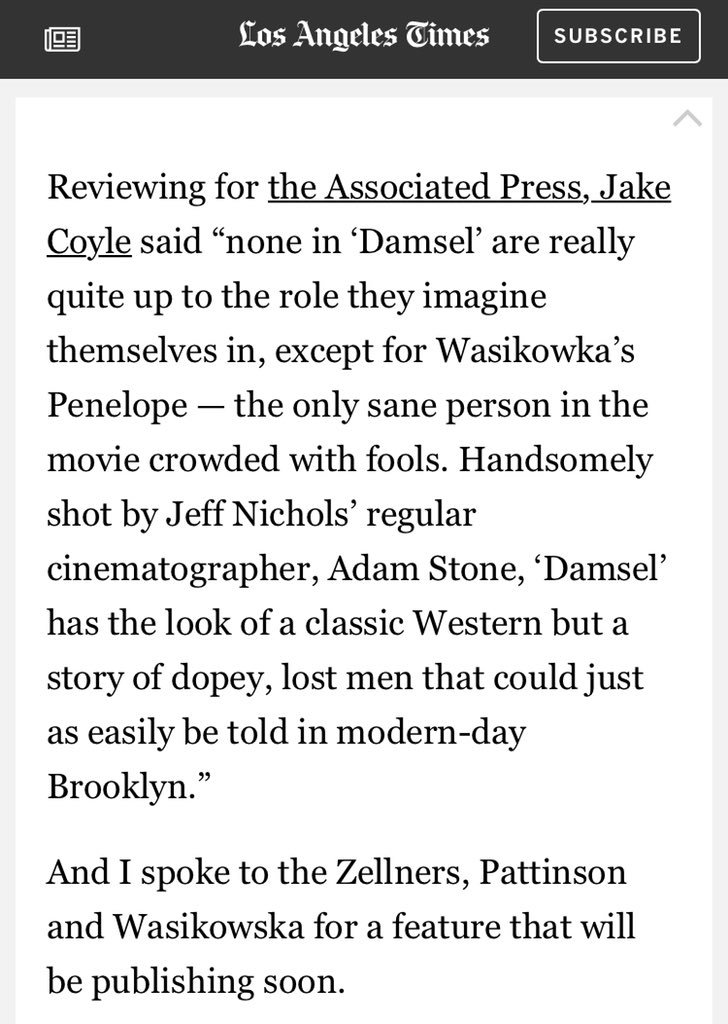
The actor told IndieWire that he didn't quite know what he was getting himself into with the Zellner brothers' oddball western, but that's sort of his thing these days.
When Robert Pattinson first received the script for the David and Nathan Zellners’ “Damsel,” a quirky, inverted western in which various cockeyed suitors pine for love of a woman disinterested in their advances, he passed. “It just seemed like one of those things that’s never going to get financing, so it just didn’t really register with me,” he said.
A few weeks later, he went to see “Kumiko, the Treasure Hunter” in theaters, not realizing it came from the same sibling director pair. He called his agent, eager to meet whoever was behind it.
“He was like, yeah, you just got offered a role for their new movie and you didn’t meet with them,” Pattinson recalled. He circled back on “Damsel,” which sees him entering strange terrain for an actor whose penchant for stone-faced roles has evolved from the “Twilight” franchise to auteur-driven work like David Cronenberg’s “Cosmopolis” and the Safdie brothers’ “Good Time.”
As Samuel Alabaster, the foolishly overconfident pioneer eager to rescue Penelope (Mia Wasichowska) from her supposed captors even though she may not want the help, Pattinson found himself in the unlikely position of a comedic role. That was something he didn’t expect when he signed up, in part because the melancholic “Kumiko” — in which a Japanese woman, believing the plot of “Fargo” to be real, gets lost in Nebraska — had a totally different feel. “Kumiko’ is one of the strangest movies ever,” Pattinson said. “To have such an odd movie and make it coherent and kind of touching, the aesthetic of it is really elegant of it, and kind of cool, too — they had a lot going on at the same time. Connecting that with the script for ‘Damsel’ felt really left field to me.”
When he read “Damsel,” he said, “it didn’t read necessarily as a straight comedy, it just felt really odd.” Still trying to figure how to classify the movie after production wrapped, he dug back into the Zellners’ filmography and watched “Kid-Thing,” their dark, lyrical story of a young girl who hears a voice down the well. Unlike “Kumiko,” the Zellners’ first project on a bigger budget, “Kid-Thing” conveys their off-beat, deadpan humor in clearer terms. He recognized that while “Kumiko” had a “stately” feel to it, the Austin-based filmmakers’ other movies were “more ramshackle.”
Still, “Damsel” doesn’t signal some new phase of Pattinson’s career in studio rom-coms. While Samuel commands the first act of the movie, his obsession with finding the girl of his dreams required the actor play it straight. “The guy is completely psychotic,” Pattinson said. “He’s never done anything more nefarious than annoying people, but his capacity for delusion is kind of frightening. He’s not a bumbling moron. His actions are very premeditated. He’s deeply, deeply mad. I was approaching it like that.”
In one standout moment from the movie, Samuel performs an entire song on acoustic guitar that he’s written for Penelope. Searching for a way to categorize the movie he was making, he hoped to make the crew laugh. “There were scenes where nobody was laughing,” he said. “I was trying to get a reaction from people. With that song, I finally saw the boom operator smiling, and it was the biggest relief.”Click HERE to read the entire interview!

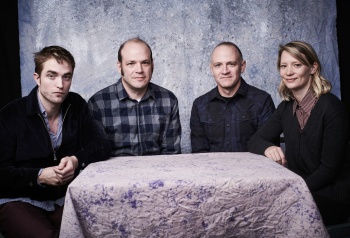
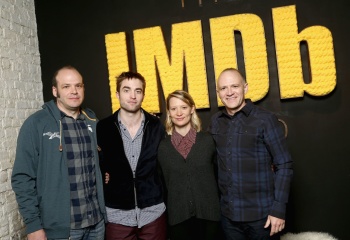
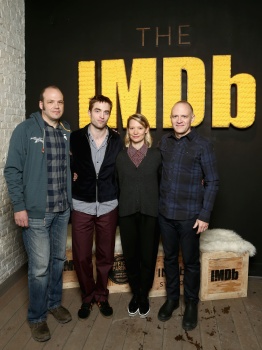
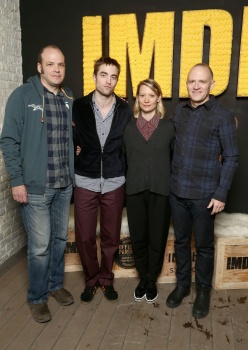
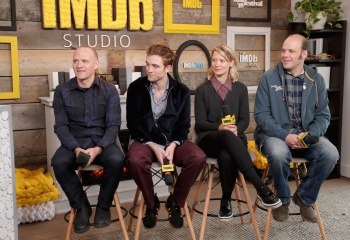
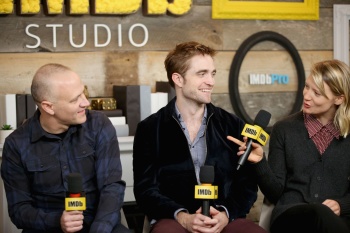
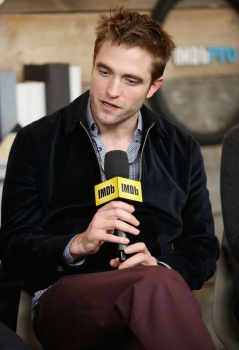
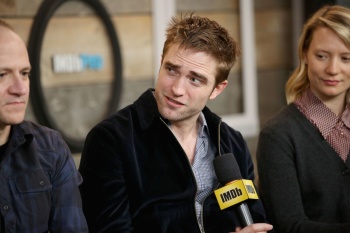
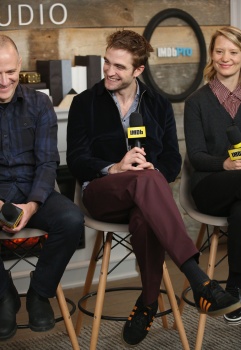
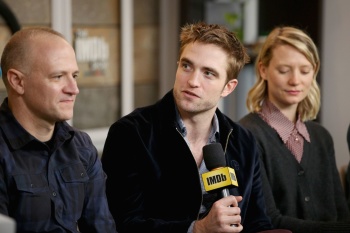
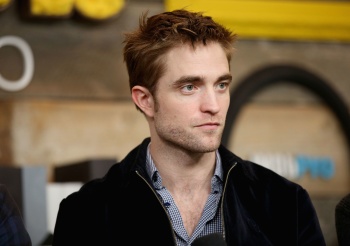
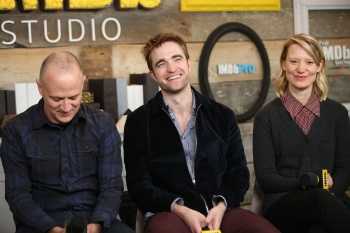
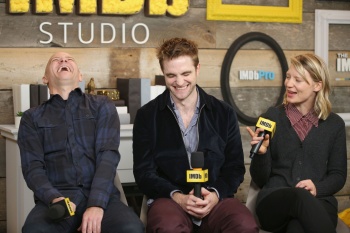
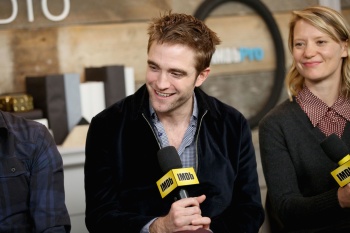
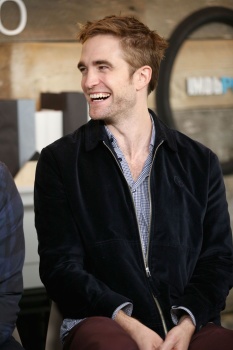
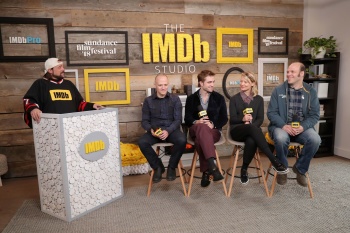
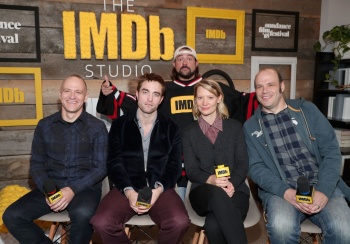
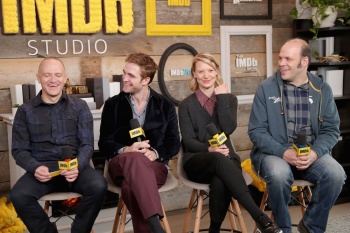
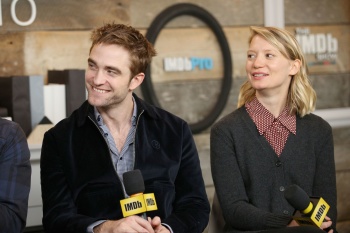
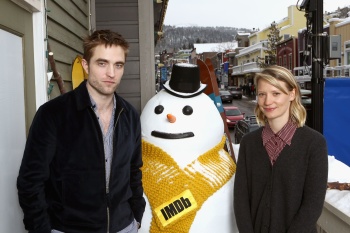
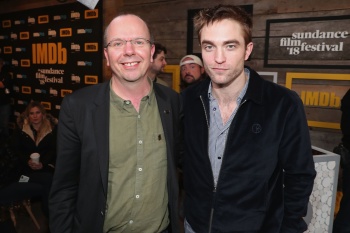
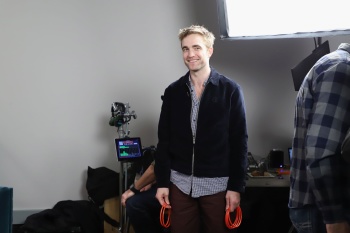
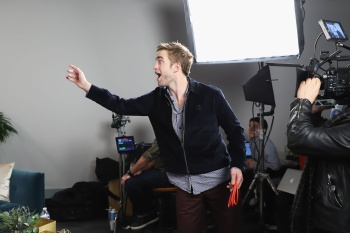
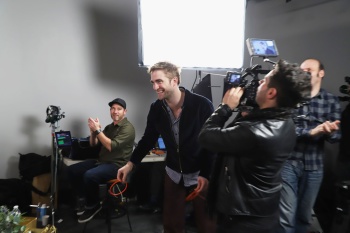

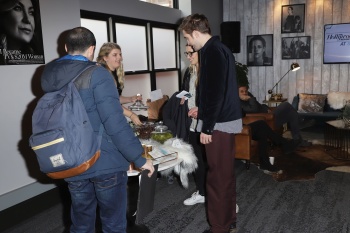
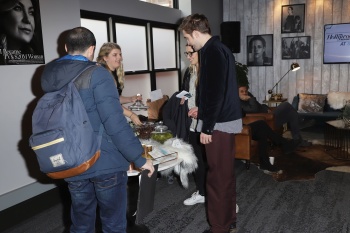
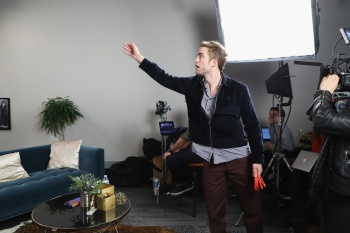
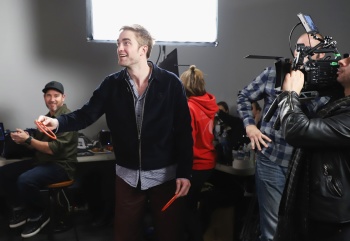
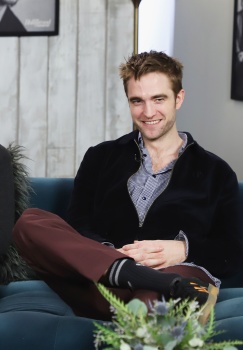
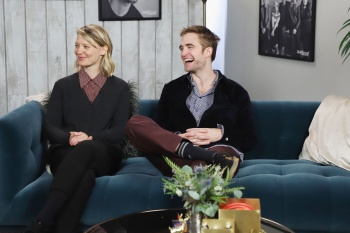
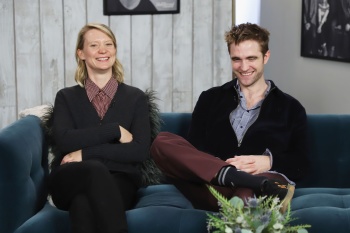
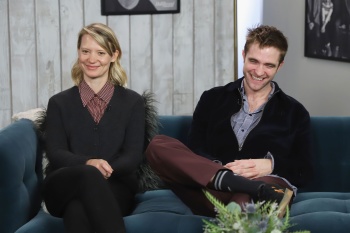
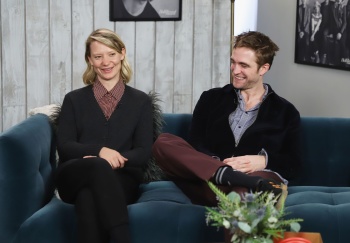
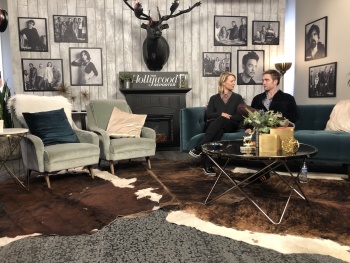
Robert Pattinson in the #IndieWire house as we shoot Awards Spotlight 2017-18. pic.twitter.com/Bbq5wohRIG
— Dana Harris (@TheKnife) November 6, 2017
'Hollywood: a land possessed by poisonous personalities; a place rammed wall-to-wall with bitterly over-indulged souls who have it all and still want more; a toxic environment in which glamour has been eroded by addiction and desperation. Or at least that’s how David Cronenberg’s caustic satire paints it.
The mass of personality defects on display throughout Maps To The Stars gives it the feel of slick soap opera amplified to sick extremities: its characters rejoice when the tragedy of others sparks a personal resurrection; pop pills like Polo mints; and treat their fans like parasitic carriers of disease. If this film so much as touches on reality, ol’ Dave has probably alienated the majority of his industry contacts.' Ben Hopkins
"With apologies to Robert Pattinson (and his legion of fans) who is very, very good in this movie, and continues to prove and reinvent himself in each new role, Guy Pearce owns "The Rover."Read it in Full over at Indiewire
The duo is officially heading into pre-production for "The Childhood of the Leader," a period piece that will mark Corbet's directorial debut and stars...oh just a little-known actor named Robert Pattinson. Though Corbet is holding onto a few secrets about the project
Brady, you're making your directorial debut with your next project, "The Childhood of a Leader" starring Robert Pattinson. What inspired you to want to direct? Were you inspired by Mona?
Brady Corbet: Mona's nodding her head like, "Yes, that's right Brady. It was me. It was me."
Mona Fastvold: [Laughs]
BC: No, what's actually stranger is that I didn't attempt to do it sooner. And it's strange that I kept acting as long as I did because for years I kept threatening to walk away and do something else. But the reason I never did walk away and do something else was I kept having opportunities to work with people I really liked and really loved. I was like, "Ok, I love your work. Absolutely I can spare a week, I can spare a month." I've worked for some people that I would have been happy to come wash their floors on set for a week just to see how they work, much less to have the relationship that an actor and a director get to have with one another, which is very special and sometimes very intimate, very unique. I've found every filmmaker I've worked with inspiring, Mona included.
One of the big problems with this project is that it summarized all the things I've really been interested in in my personal and creative life. And yet for so many years I just thought it was too grand and too ambitious to ever get made.
MF: And it almost did.
BC: And it almost did [laughs]. The film takes place in 1919, it stars a child, it's in French and English. Luckily it's not going to be four-and-a-half hours long and it's not going to be black-and-white. But that's it. It's not a very easy pitch. It's sort of about the birth of a megalomaniac and with a maniacal sort of ego at the turn of the century. It's about the birth of fascism that occurred during the signing of the Treaty of Versailles.
Has the identity of this character been revealed?
BC: I have intentionally not revealed the identity of the character. And it's a funny thing because it's not for the reasons that people think. One thing I will happily tell everybody is that the character is not Hitler [laughs]. And the character is not Mussolini. It's someone else. And there's the dramatic event where you learn who this person is and that's something I want to save for people. Robert Pattinson is not playing Hitler as you now know [laughs]. I'll go on the record saying that.
Post-"Interstellar," we update the state of the Oscar race for 2015
Going into the season, only a handful of pre-fall movies have Oscar potential; their handlers will rely on critics and guild groups to keep them in the conversation over the long haul....